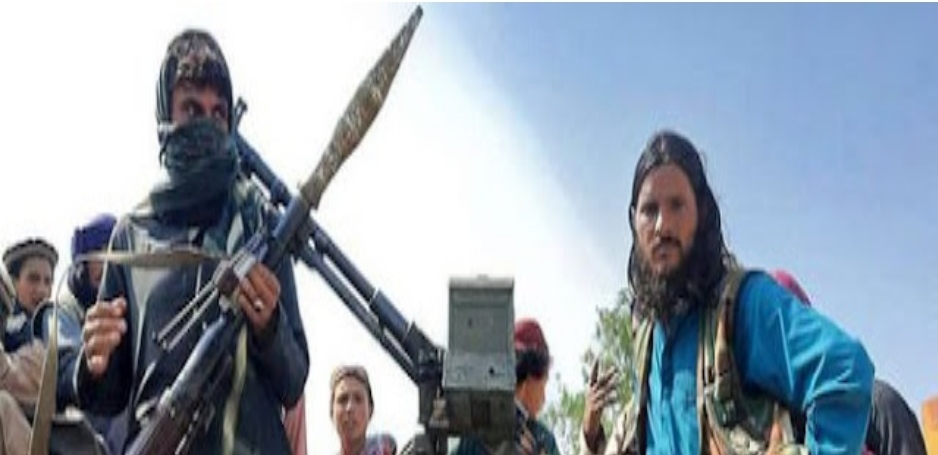USA should not even dream of asking for a base in India

The images coming out of Afghanistan are devastating.
By
Colonel Awadhesh Kumar, Veteran
An American defence analyst, who also had served in Afghanistan writes “watching Afghans clinging to planes, desperate to get out, the U.S. flag flying out of Kabul, and the Taliban holding a press conference from the president’s palace – is all heart wrenching. But none of this is as devastating as what will come if we let Afghanistan devolve even further into chaos.
The power vacuum in Afghanistan created by the Biden administration’s rushed and ill-planned withdrawal could have dangerous national security implications for years to come – unless we act now to mitigate the worst of this fallout. One way to do this is to station a quick reaction force in a country nearby that can respond to rising threats in Afghanistan. “
After creating the above debacle deliberately, The Americans are now suggesting that there should be a military base in North West India where an American Quick Reaction Force can be based. In their opinion apart from other benefits such a base will help to develop a stronger defence partnership and this is one way to do that.
Why do such people try and make such STUPID recommendations. Under no circumstances, India will permit any military base ….not even a joint one, to any foreign military.
Taliban rule in Afghanistan will be brutal – there is no question about it, we in India are fully aware of the implications. The human rights violations especially against women and girls, will be a horrible consequence of the Biden administration’s actions. In the first place, Americans had no business to go in Afghanistan in the first place. However after doing so, they should have gone out only after ensuring a UN Peace Keeping Force in place.
The USA and Europeans had been shouting at Myanmar for the handling of Rohangiya are not even demanding that UN takes action in Afghanistan. Suddenly the UN Human Rights Council has list its voice and seems to have become blind too.
Now every one is predicting that next target of Taliban will be Kashmir. Let it be, India is prepared. Any mad dog entering Kashmir will be hunted down. Kashmir is part of India, and no Indian is going to run away from India. Also the Indian Forces are totally volunteers and they are all ready to die for their country if required.
We will also make it clear to all and sundry, including China and Pakistan that not only the Taliban terrorists will be hunted down in Kashmir, all their training and administrative bases located anywhere in the world will be targeted and destroyed. In case this means war with any country then so be it.
India has many other options too. Major one will be to work out a plan together with Russia, Iran, Tajikistan and with others in the Region. Also work out ways to provide aid to all those Afghanistan groups who are now regrouping to fight the Taliban.
In case the Taliban Pakistan nexus CROSSES THE LINE with respect to India then we have the option to take back Gilgit Baltistan by force. This will ensure that we get a land link to Afghanistan Wakhan Corridor.
Great Britain during rise as a World Power fought the following wars in Afghanistan :
- First Afghan War 1839 to 1842 which was a total disaster for the British.
- The Second Anglo Afghan War 1878 to 1880
- A Campaign to siege Malakand and Torah in 1897
- Third Afghan War in 1919 in which the Afghan achieved their aim of gaining independence
The First Afghan War was fought by the British Empire as part of the GREAT GAME with the Russians in mind. Initially, the British successfully intervened in a succession dispute and captured Kabul. However later the main British Indian force occupying Kabul along with their camp followers was almost completely annihilated during its retreat from Kabul. The British then sent an Army again to Kabul to avenge the destruction of their previous forces. They defeated the Afghans and having demolished parts of the capital and recovering their prisoners, they withdrew from Afghanistan by the end of the year.
The Second Afghan War was again part of the Great Game. The first part started with British invasion of Afghanistan and the they were quickly victorious and forced the Treaty of Gandamak. This treaty was signed by the Afghans to prevent a British invasion of the rest of the country. According to this agreement and in return for an annual subsidy and vague assurances of assistance in case of foreign aggression, the Afghans relinquished control of Afghan foreign affairs to Britain. The British then sent an envoy and mission to Kabul but this mission was massacred and the conflict was reignited. The second part ended in September 1880 when the British decisively defeated the Afghans at kandhar. A new Amir selected by the British, ratified and confirmed the Gandamak treaty once more. The Afghans agreed to let the British attain all of their geopolitical objectives, as well as create a buffer between the Raj and the Russian Empire. The majority of troops who fought for the British were Indians.
The Third Afghan War was started by the new Emir of Afghanistan. He immediately repudiated the Treaty of Gandamak, which had given the British control of Afghan foreign policy at the end of the Second War. Within weeks of his succession, the Amir declared full independence and proclaimed ‘jihad’, or Holy War. By encouraging revolt on the neighbouring North West Frontier of India he hoped to seize Peshawar and the old Afghan provinces west of the River Indus that had been captured by the Sikhs many years before. The Emir believed that the British and their Indian troops would be too war-weary( WW1) to resist. He also hoped to take advantage of ongoing nationalist unrest in India. The ambitious plans of the Emir to reclaim Peshawar and throw the British out of India had failed. However the Treaty of Rawalpindi brought the war to an end and did recognise full Afghan independence and finally gave the Afghans the right to conduct their own foreign affairs. For the British, the Durand Line, long a contentious issue between the two nations, was reaffirmed as the political boundary separating Afghanistan from the North West Frontier. The Afghans also agreed to stop interfering with the tribes on the British side of the line.
So it is very clear that even at the Zenith, the British could only temporarily hold the Afghans at bay and that too only with the help of Indian troops. So does anyone think that now England with Scotland and Northern Ireland somehow holding together has the capability and finances to raise a Force which will be able to subjugate Afghanistan from where the Americans are in the process of retreating in haste after spending decades and before them the Russians had to flee in a similar manner. Even Alexander and later Selucus could not control them for long.
History shows that Afghanistan has had prolonged period of peace only when under Indian Kamboj Kings and later Empires of Mauryas, Guptas, Kanishka etc. Even in Vedic period Gandhar was a vassal state of Aryavarta / Hastinapur.
Afghanistan had always been a part of India; it was called Gandhar (modern Kandahar), a vibrant province that gave us excellent art, architecture, literature and scientific knowledge – a world far removed from today’s Taliban infested badlands.
It was an Indian province until 1735 when Nadir Shah of Iran, emboldened by the lack of strong central authority in India, ransacked Delhi and everything on the way. This was a highly opportunistic and reckless act because for the past 25 centuries India and Iran had respected each other’s borders. The two empires never tried to subvert each other till then.
Ranjit Singh got back the area up to Khyber pass. General Nalwa was the man who had brought the Afghans to their sound defeat.
Right after fleeing Afghanistan Americans have started to dream the following “Having a base nearby is essential if the U.S. intends to effectively conduct intelligence missions as well as stage counterterrorism strikes. Over the horizon counterterrorism strategy requires a nearby base or we will be forced to use the same kind of long-range strikes we did back in October 2001 when B-52 bombers had to fly back and forth from the Indian Ocean to land-locked Afghanistan for over 420 hours straight. The longer it takes to travel to a target, the riskier the mission becomes. Instead, operating from a nearby country like India, the U.S. could use ground sensors for surveillance and long-range stealth drones, greatly decreasing the risk to U.S. assets and personnel.”
As it is USA has vacated Afghanistan. So instead of dreaming the above dream, time has come for the Americans to vacate entire Asia, lock,stick and barrel.



